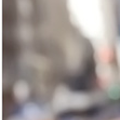My thoughts on poor public perception: Lead by example
Not since the 1960s have police been subjected to so much criticism, disaffection and public abuse. I’d like to touch on the public confidence issues that have grown out of these difficult times.
The police profession is in a constant state of flux and every day brings new challenges. Some of what’s transpired has been terrific for the law enforcement profession: technological advances have made policing much more efficient and assisted in helping to bring down crime, but some changes — not so much.
Police executives and recruiters tell me they have enormous problems recruiting new officers to their ranks. One of the main issues is a lack of commitment to the profession. So many who become officers have no plans to remain in law enforcement. Instead, chiefs, sheriffs and others say they’re seeing more and more recruits come through their doors with the intention of serving for only a few years and then moving on.
Law enforcement suffers when there is a general lack of experience or depth in the ranks. I know when I first pinned on that badge, the people I learned the most from were the older, more experienced cops. They picked up where the police academy left off, taught me the things that aren't taught in a classroom, knew the city better than anyone else and conditioned me to survive on the streets.
Another plus for experienced officers: they’ve learned to wear the badge without being overwhelmed by it. By this I mean they’ve grown accustomed to the vast amount of power granted to LEOs by virtue of their jobs and learned how to properly wield it. With that power comes the ability to rob someone of the most important things they possess — their free will, as well as their freedom. This is not an authority to be lightly taken.
One problem that has grown out of the relative inexperience on the line is an arrogance that has helped engender mistrust by the public. I’ve spoken to officers who were dismissive and rude from my own department. This may sound a lot like I’m saying that us old dinosaurs were better at public relations than today’s officers, but I’m not. We had our problems, too. But one thing my FTO taught me was to always treat every person with respect and courtesy. It didn't matter if it was an accident victim or a shoplifter, you can convey command presence and still be polite at the same time.
Why am I talking about this?
Because the public perception of police right now is at the lowest point I’ve seen it in years. Yes, most people recognize how hard and dangerous the job is, but if you routinely display rudeness and a sense of superiority to people, you’re going to reap what you sow when there’s even the suggestion that police have tripped up.
I know police officers in general want everyone they deal with to end the shift safely, even the suspects, but the public is being stirred to believe otherwise. That’s why police must counter by putting their best foot forward, especially in neighborhoods where young, disenfranchised youth are found. No, I’m not suggesting officers not quell riots and or forfeit their authority to safeguard both lives and property; the early Baltimore riots were absolutely shameful. Those officers should have been allowed to do their job. But I am suggesting that one way to heal this fission between the police and civilian world is by showing the best side of policing to the people who doubt us the most.
Lead by example. It will be noticed.
About the Author

Carole Moore
A 12-year veteran of police work, Carole Moore has served in patrol, forensics, crime prevention and criminal investigations, and has extensive training in many law enforcement disciplines. She welcomes comments at [email protected].
She is the author of The Last Place You'd Look: True Stories of Missing Persons and the People Who Search for Them (Rowman & Littlefield, Spring 2011)
Carole can be contacted through the following:
- www.carolemoore.com
- Amazon author page: http://www.amazon.com/-/e/B004APO40S